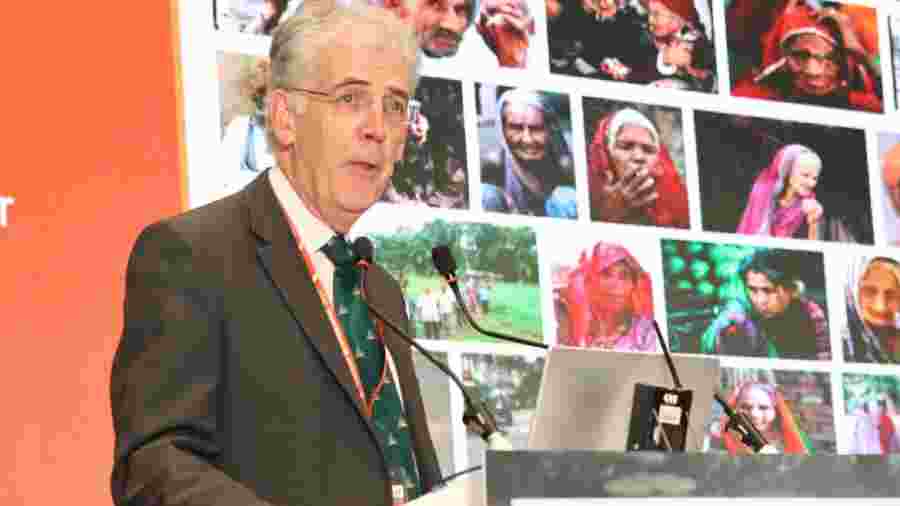The declining numbers of general physicians who can treat a range of illnesses means the elderly, likely to have multiple ailments, have to spend more time and money visiting several specialists, a clinician based in Edinburgh said here on Saturday.
“If you have six different things wrong with you, in a purely specialist model you have to go to six specialists, maybe to different hospitals. That is spending a lot of time and money,” Andrew Elder, president of the Royal College of Physicians of Edinburgh, said. Even younger people and those with single, uncomplicated health issues rarely visit a general practitioner (GP) now, doctors in Calcutta said.
For instance, someone with simple indigestion tends to seek an appointment with a gastroenterologist. “Imagine, if you could have one doctor, a generalist who can give good enough care, maybe not for all the six problems you have but for four of them. Then that would save time for the patient, save money for the system and could still ensure a good standard of care,” Elder, consultant physician with NHS Fife and honorary professor, University of Edinburgh, said.
Elder was speaking to The Telegraph on the sidelines of Medicon 2022, an international conference on advanced clinical medicine organised by Peerless Hospital along with the Royal College of Physicians of Edinburgh and the Association of Physicians of India, Bengal chapter.
Someone over 60 is most likely to have more than one health condition such as diabetes or heart or bone disease, Elder said. “No healthcare system can afford a totally specialised way of delivering healthcare to all its people.
You can afford it for a proportion of your population, for the wealthy. No country in the world can afford a specialist model for universal healthcare. There needs to be generalists,” Elder said. Healthcare for the old needs not just doctors but also nurses, physiotherapists, speech and language therapists, among others, who are trained to care for the elderly, he said.
In today’s world, smaller and geographically dispersed families — mostly because of younger people moving away for work, a problem particularly acute in Bengal — have left the elderly to fend for themselves.
Elder said people should see ageing as a triumph and not a disaster. He argued that the larger numbers of the elderly in today’s world showed the progress made in healthcare across the world — the improved care for heart attacks, strokes and other ailments. “We are allowing people to grow old in a way we couldn’t before. But if we don’t organise our services, there is a risk that it can become a very difficult problem,” he said.
Chandramouli Bhattacharya, an infectious diseases specialist with Peerless Hospital, said: “When two or three specialists prescribe separate medicines, the number of medicines the patient takes increases. Many of these drugs interact with each other, not always in a beneficial way for the patient. The ideal situation is that a patient goes to a generalist, who decides when to send the patient to a specialist.”
A doctor who didn’t want to be quoted said that society didn’t value GPs any more, which was why younger doctors almost always want to obtain a specialist degree before they start practising. More postgraduate medical seats are now available than before, and most are in specialist branches.
The prestige associated with a PG degree, and the possibilities of greater professional success with a specialist tag, are fuelling the disappearance of the friendly neighbourhood GP, or “family physician”, the doctor said.











